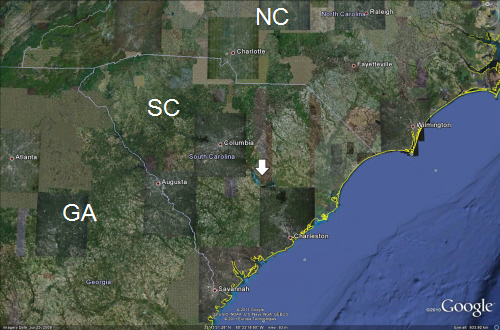
 The world is rapidly approaching 7 billion people and the challenges of food supply, security, and sustainability will, along with climate change, be the defining issues of the 21st century. While the issues of the wealthiest nations revolve around the quality of our food, the environmental impact or our farming practices, and the value we place on a perceived degree of “naturalness”, the rest of the world is simply concerned with having enough to eat. What we chose to value in our society affects the rest of the world, and perhaps the most visible, and most dramatic difference between the developing and developed world is the ways in which we treat our pets.
The world is rapidly approaching 7 billion people and the challenges of food supply, security, and sustainability will, along with climate change, be the defining issues of the 21st century. While the issues of the wealthiest nations revolve around the quality of our food, the environmental impact or our farming practices, and the value we place on a perceived degree of “naturalness”, the rest of the world is simply concerned with having enough to eat. What we chose to value in our society affects the rest of the world, and perhaps the most visible, and most dramatic difference between the developing and developed world is the ways in which we treat our pets.
Category: Conservation
The winner of “Best Conservation Message” at the 2011 Beneath the Waves Film Festival came from Laura Hutchinson, a graduate student at Texas A and M’s Harte Research Institute. Sink Your Shucks explains the ecological importance of oysters and how people can help to restore oyster reefs.

 While I often disagreed with former Speaker of the House Nancy Pelosi, her “green the capitol” initiative was admirable. Serving local foods in the cafeteria and providing diners with compostable utensils and cups helped make the House of Representatives a model eco-friendly workplace. Now that Republicans have retaken the house, they have decided to abandon these policies.
While I often disagreed with former Speaker of the House Nancy Pelosi, her “green the capitol” initiative was admirable. Serving local foods in the cafeteria and providing diners with compostable utensils and cups helped make the House of Representatives a model eco-friendly workplace. Now that Republicans have retaken the house, they have decided to abandon these policies.
Read More “Republican House leaders abandon Pelosi’s “green the capitol” initiative” »

 In a world where greenwashing, overfishing, bycatch and pirate fishing run rampant, it can be difficult for eco-conscious consumers to know what to buy. Many eco-certification agencies exist, but they often offer conflicting advice. Who should you listen to?
In a world where greenwashing, overfishing, bycatch and pirate fishing run rampant, it can be difficult for eco-conscious consumers to know what to buy. Many eco-certification agencies exist, but they often offer conflicting advice. Who should you listen to?
Read More “MSC considering granting sustainable status to a fishery with high shark bycatch” »

 I adored Song for the Blue Ocean. The first time I read it was a formative moment in my development as a young marine biologist and conservationist. When I picked up Eye of the Albatross and, later, Voyage of the Turtle, I expected that same magic, but could not find it. Safina’s subsequent books were not bad. Both were evocative, beautifully written, and stirring tributes to the natural world. But their stories felt too familiar, like listening to a contemporary symphony built around a Bach fugue or watching a remake of a classic movie. So I approached The View from Lazy Point with the same expectations, as yet another supplement to Song for the Blue Ocean. I was mistaken.
I adored Song for the Blue Ocean. The first time I read it was a formative moment in my development as a young marine biologist and conservationist. When I picked up Eye of the Albatross and, later, Voyage of the Turtle, I expected that same magic, but could not find it. Safina’s subsequent books were not bad. Both were evocative, beautifully written, and stirring tributes to the natural world. But their stories felt too familiar, like listening to a contemporary symphony built around a Bach fugue or watching a remake of a classic movie. So I approached The View from Lazy Point with the same expectations, as yet another supplement to Song for the Blue Ocean. I was mistaken.

Earlier this month, a video of fishermen shooting a rifle at sharks appeared on YouTube and caused quite a stir. The video has since been removed, but not before shark conservation activists made copies (warning: the videos are extremely graphic and have inappropriate language). Apparently some computers can access the site with the videos and others can’t, if you can’t access the site and want a copy of the videos just let me know. All images in this post are screenshots from the video.
Read More “Shark shooter identified, but has he broken any laws?” »
[Editor’s Notice – Comments have been suspended on this post. Please visit “Full video of injured shark shows numerous natural injuries” for an update on this controversy]

Last summer, I reviewed National Geographic’s “Expedition Great White” and interviewed the lead scientist. Several researchers and conservationists were concerned about the methods that Dr. Michael Domeier uses to study great white sharks, particularly after one shark was “foul hooked” through the gills. These methods (removing captured great white sharks from the water to study them using a forklift-like structure) make for excellent television, but may be harmful to the sharks. As I reported last year:
Read More “Severely injured great white shark found, are scientists responsible?” »
 Last week, the Indian Ocean Tuna Commission held their annual meeting in Sri Lanka. As one of the few international fisheries policy organizations in the region, the IOTC is also responsible for management of billfish and sharks. Several new shark conservation policies were proposed this year. These included species-specific protections for hammerhead and oceanic whitetip sharks, closing loopholes in existing policies that ban finning sharks and discarding the bodies at sea, and requiring fishermen to collect and report more types of data on their shark bycatch. All of these proposals were rejected.
Last week, the Indian Ocean Tuna Commission held their annual meeting in Sri Lanka. As one of the few international fisheries policy organizations in the region, the IOTC is also responsible for management of billfish and sharks. Several new shark conservation policies were proposed this year. These included species-specific protections for hammerhead and oceanic whitetip sharks, closing loopholes in existing policies that ban finning sharks and discarding the bodies at sea, and requiring fishermen to collect and report more types of data on their shark bycatch. All of these proposals were rejected.
Read More “Indian Ocean Tuna Commission Rejects Shark Conservation Policies” »
 As part of our Biodiversity Wednesday series, we’ve discussed amazing ecosystems all over the world. This week’s post will focus on an area a little closer to home (at least a little closer to my home). The Santee Cooper lake system, home to unique fish and a fascinating history, is less than an hour from Charleston. If you’ve ever driven on I-95 through South Carolina, you’ve gone right over it.
As part of our Biodiversity Wednesday series, we’ve discussed amazing ecosystems all over the world. This week’s post will focus on an area a little closer to home (at least a little closer to my home). The Santee Cooper lake system, home to unique fish and a fascinating history, is less than an hour from Charleston. If you’ve ever driven on I-95 through South Carolina, you’ve gone right over it.
Read More “Biodiversity Wednesday: South Carolina’s Santee Cooper Lake System” »
The Nicholas School of the Environment is hosting the Flat Grok Video Contest. We are on an unsustainable course. While world populations and consumption grow, resources diminish and global warming threatens our way of life. In his blog The Green Grok, Dr. Bill Chameides, dean of the Nicholas School of the Environment at Duke University, elucidates … Read More “Grok my Flock” »
